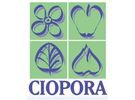On January 14, 2019, the German Law on Modernisation of the Trademark Law (“Gesetz zur Umsetzung der Richtlinie (EU) 2015/2436 des Europäischen Parlaments und des Rates vom 16. Dezember 2015 zur Angleichung der Rechtsvorschriften der Mitgliedstaaten über die Marken – Markenrechtsmodernisierungsgesetz (MaMoG)”) will enter into force.
by Thomas Leidereiter
The MaMoG implements the provisions of the Directive (EU) 2015/2436 of 16 December 2015. Most significantly for CIOPORA members, this law will introduce a new absolute ground for refusal of trademark applications (or declaration of a registered trademark invalid) on the national level in Germany.
Pursuant to the new § 8 (2) (12) of the German Trademark Act, the following trademarks shall not be registered or, if registered, shall be deemed invalid:
“(12) trademarks which consist of, or reproduce in their essential elements, an earlier plant variety denomination registered in accordance with German law, European Union legislation or international agreements to which the European Union or Germany is party, providing protection for Plant Variety Rights, and which are in respect of plant varieties of the same or closely related species.”
Those CIOPORA members dealing with European Union Trademarks (EUTM) will most likely have some experience with the EU equivalent of this provision. While there is still quite a bit of uncertainty as to the actual scope of the provision in the European context (e.g. what about denominations of varieties PVRs on which have been cancelled?), already numerous applicants were faced with a provisional refusal of their class 31 EUTM application since the application covered also registered variety denominations.
With the transposition of the variety denomination rule into the national German law, also the German Patent and Trademark Office will have to adapt its examination practice for class 31 applications. Thus, choosing a national German trademark application as an alternative will no longer lead to a registration.
This and further relevant issues and practical consequences of the new law will be dealt with in the EU trademark Module of the CIOPORA Academy on April 1, 2019, in Stellenbosch, South Africa.
For more information: CIOPORA
CIOPORA
Deichstraße 29
20459 Hamburg
Germany
T: +49 (0)40-555-63-702
F: +49 (0)40-555-63-703
www.ciopora.org
